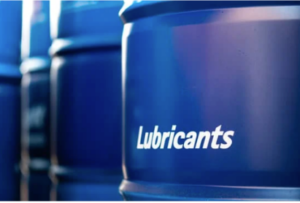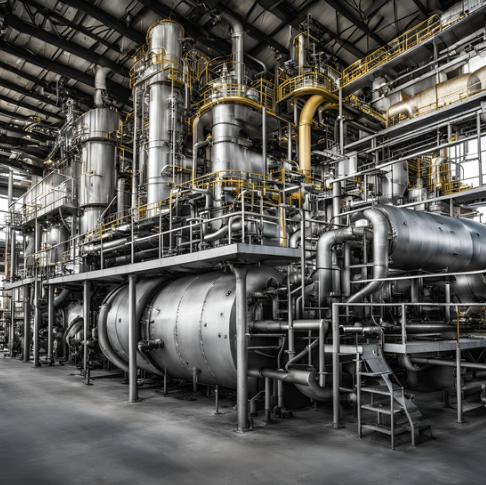Lubrication plays a crucial role in petrochemical plant operations. From reducing friction to preventing wear and tear on equipment, proper lubrication maintenance is essential in ensuring the reliability and longevity of plant equipment. This blog examines the significance of lubrication in petrochemical plant operations, the components of a successful lubrication maintenance program, and the impact of lubrication on equipment reliability.
The Importance of Lubrication in Petrochemical Plant Operations
Within the demanding environment of a petrochemical plant, where machinery is constantly exposed to extreme conditions, the role of lubrication surpasses mere mechanical necessity.
Adequate lubrication is the lifeblood of the vast array of equipment used in these plants, from pumps and compressors to turbines and conveyors. The specific challenges these settings present—like exposure to corrosive substances, fluctuating temperatures, and high-pressure operations—underscore the importance of selecting and applying the right lubricants.
The direct benefits of lubrication in such a high-stakes environment are multifaceted. It significantly reduces the friction between moving parts of machinery. This reduction in friction conserves energy by allowing machines to operate more efficiently and minimizes the heat generated during operations. Excess heat can degrade the components of machinery over time, leading to premature failure and the potential for unsafe working conditions.
Lubrication acts as a barrier against the ingress of contaminants. In petrochemical operations, where dust, dirt, and chemical residues can infiltrate machinery, the proper lubricant can seal vulnerable entry points, protecting critical components from contamination. This protective layer also helps to thwart the corrosive effects that can arise from exposure to harsh chemicals, thereby preserving the integrity of the machinery.
Additionally, lubrication facilitates the smooth operation of equipment by dampening vibrations and shock loads. This is crucial in maintaining operational stability and preventing undue stress on structural components, which can lead to distortions or mechanical failures.
Given these considerations, lubrication is not just a maintenance task but a strategic imperative in petrochemical plant operations. By ensuring that all equipment receives the proper lubrication care, plants can safeguard their operations against unplanned downtime, extend the service life of their equipment, and maintain an edge in the competitive petrochemical industry.
The Components of a Successful Lubrication Maintenance Program
A comprehensive lubrication maintenance program in a petrochemical plant encompasses several critical components, each tailored to bolster equipment efficiency and reliability while extending its operational lifespan. Central to this program is the systematic approach to lubricant selection, application, monitoring, and management practices, which are outlined below:
- Lubricant Selection: It is paramount to identify the most appropriate lubricants for different equipment types. This step involves understanding the specific operational demands, including temperature ranges, load pressures, and environmental conditions, to choose products that deliver optimal performance and protection. Special attention should be paid to the compatibility of lubricants with plant equipment materials and the potential for adverse reactions with process chemicals.
- Application Techniques: Proper application methods are crucial for the effectiveness of lubricants. This includes determining the correct lubrication intervals and quantities, which can vary significantly across different types of machinery. Automated lubrication systems may enhance precision in lubricant delivery, especially in hard-to-reach areas or components that require consistent lubrication.
- Lubricant Monitoring and Analysis: Regular monitoring of lubricant conditions can provide valuable insights into the health of plant equipment. This can include visual inspections and more sophisticated oil analysis techniques to detect contamination, wear particles, and chemical degradation. Such data can preemptively identify potential equipment issues before they escalate into failures.
- Training and Documentation: It is fundamental to ensure maintenance personnel are well-trained in lubrication best practices. This involves comprehending the properties of various lubricants, implementing correct storage and handling procedures to avoid contamination, and understanding the specific requirements for lubricating different types of equipment. Comprehensive documentation and record-keeping of lubrication schedules, quantities applied, and any anomalies observed during inspections are also essential for tracking performance over time and refining the lubrication program.
- Continuous Improvement: A successful lubrication maintenance program is not static but evolves with advancements in technology, variations in the plant environment, and equipment changes. Regular reviews of lubrication practices, feedback from maintenance teams, and industry-standard updates help enhance the program’s effectiveness.
Implementing these components with a disciplined and informed approach is the cornerstone of achieving a successful lubrication maintenance program in a petrochemical plant, ensuring that equipment operates reliably and efficiently while minimizing the risk of unplanned downtime.
Lubrication and Equipment Reliability: Analyzing the Data
The research underscores the tangible benefits of a diligent lubrication maintenance strategy on the reliability and efficiency of petrochemical plant equipment. A landmark study within the industry observed a direct link between rigorous lubrication maintenance and a marked reduction in mechanical failures. Plants embracing a robust maintenance approach reported a decrease in equipment failures by up to 30%, underscoring the preventative power of proper lubrication. Additionally, these practices were linked to a significant reduction in maintenance expenses with savings in some cases exceeding 25%.
Beyond cost savings, operational efficiency metrics also improved. Enhanced lubrication practices contributed to an increase in machine availability, pushing operational uptime figures higher. This boost in productivity is not merely a byproduct of reduced breakdowns but also stems from optimized machine performance and extended equipment life, thanks to the minimization of wear and tear.
Notably, the data reveals that the benefits of lubrication maintenance extend beyond immediate operational gains. Long-term asset management strategies incorporating comprehensive lubrication programs exhibit improved overall asset reliability and a reduced total cost of ownership (TCO) for critical equipment. These outcomes enhance the competitive stance of petrochemical plants and contribute to a more sustainable operational model by mitigating the environmental impact associated with equipment failures and unnecessary maintenance activities.
Thus, investing in and prioritizing lubrication maintenance is crucial for operational excellence in the petrochemical industry. Data-driven insights affirm its pivotal role in bolstering equipment reliability and plant performance.

Overcoming Common Challenges in Lubrication Maintenance
Navigating the hurdles of effective lubrication maintenance in petrochemical plants requires a strategic and informed approach. Among the prevalent obstacles is the gap in knowledge and expertise among personnel. This gap can lead to suboptimal application techniques and incorrect lubricants, compromising equipment efficiency and longevity. To bridge this knowledge divide, targeted training programs that focus on the nuances of lubrication science and its application in petrochemical settings are essential. These programs should cover the characteristics of various lubricants, the specifics of equipment needs, and the environmental factors affecting lubricant performance.
Another significant challenge is the selection of lubricants unsuited to the plant’s specific conditions or machinery requirements. This mismatch can accelerate wear and tear, leading to increased maintenance needs and potential equipment failure. Close collaboration with lubricant suppliers and consultants can aid in navigating the complex landscape of lubricant options to identify products that meet the unique demands of the plant’s operations.
Poor documentation and record-keeping practices also present a barrier to effective lubrication maintenance. Accurate records of lubrication schedules, quantities, and observations from previous applications make tracking lubricant performance and informed adjustments to maintenance protocols easier. A robust digital tracking system can facilitate better record-keeping, allowing maintenance teams to access historical data, schedule future lubrication activities, and adjust practices based on real-time insights from equipment performance.
Addressing these challenges requires a proactive and continuous effort to refine lubrication practices. By investing in personnel training, collaborating with experts on lubricant selection, and leveraging technology for better record-keeping, petrochemical plants can overcome these hurdles and optimize their lubrication maintenance program to achieve higher equipment reliability and efficiency.
The Future of Lubrication Maintenance in Petrochemical Plants
As the petrochemical industry advances, the trajectory of lubrication maintenance heralds a new era of sophistication and efficiency. The emergence of high-performance synthetic lubricants offers enhanced protection against extreme temperatures and corrosive chemicals, aligning with the industry’s demand for more resilient and long-lasting solutions. These synthetic options promise to extend equipment life and contribute to environmental sustainability by reducing waste and the frequency of lubricant changes.
Predictive maintenance technologies leveraging the power of the Internet of Things (IoT) and Artificial Intelligence (AI) are set to transform lubrication strategies. These technologies enable real-time monitoring of lubricant conditions and machinery health by integrating sensors and intelligent analytics. This shift towards predictive maintenance allows for anticipating lubrication needs and identifying potential issues before they escalate into costly failures, thus optimizing maintenance schedules and enhancing operational reliability.
Furthermore, the adoption of automated lubrication systems is on the rise. These systems offer precise and consistent lubricant application while minimizing human error and exposure to hazardous conditions. This automation streamlines maintenance processes and supports the industry’s move towards safer and more efficient operations.
As petrochemical plants embrace these innovations, the focus on training and skill development remains paramount. Empowering maintenance personnel with knowledge of advanced lubrication practices and technologies is crucial for harnessing the full potential of these advancements, ensuring that plants not only keep pace but also set new standards for equipment reliability and performance in the petrochemical sector.
Contact us to discuss how IFM can help improve your lubrication practices.
